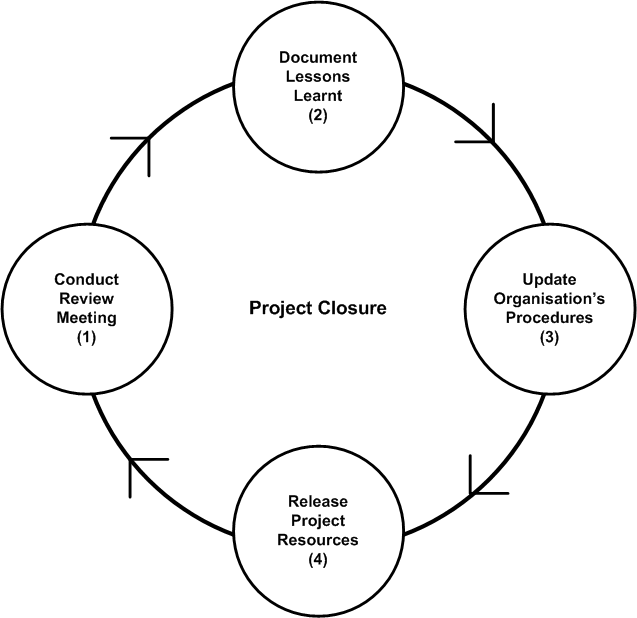
Project Closure
The Project Closure Phase is the last phase in the project life cycle. In this phase, one formally closes the project and then reports its overall level of success (or otherwise) to the sponsor.
Project Closure involves handing over the deliverables to the customer, transferring the documentation to the business, cancelling supplier contracts, releasing staff and equipment, and informing stakeholders of the closure of the project. After the project has been closed, a Post Implementation Review is completed to determine the project’s success and identify the lessons learned.
The outputs of this process are Final Product, Service or Result Transition, and Organizational Process Assets Update. While the former output can be deduced, the latter output is more complex. It involves capturing all project artifacts, such as the Project Management Plan, Risk Register, and Stakeholder Register. It’ll include formal documentation on the completion or termination of the project/phase. As a project manager, you will review the contract and the customer acceptance documentation.
A key activity that takes places during this process is that lessons learned are identified and documented. Future projects may use these lessons and avoid project failure. Hence, projects need to be closed earnestly. To succeed in this, ensure that the team appreciates the problems that they faced! The lessons learned are not only for reviewing the problems faced, but makes team members retrospect on the successes.
The following diagram illustrates some of the activities that are typically performed during the Close Project.



